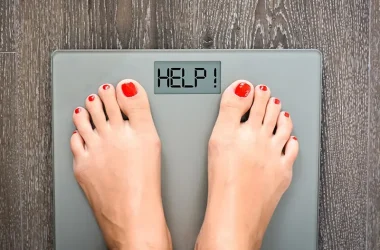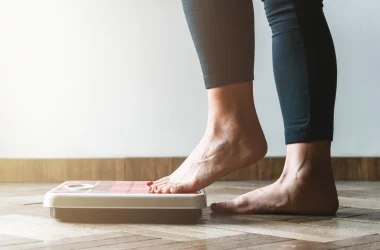If you’ve heard that tirzepatide, the same medication used for weight loss, can now treat sleep apnea, you’re not alone.
In 2024, the FDA approved tirzepatide (brand name Zepbound) for adults with moderate to severe obstructive sleep apnea (OSA) who also have obesity.
This breakthrough offers new hope to millions of people who struggle with interrupted sleep, loud snoring, and daytime fatigue.
Let’s explore how tirzepatide helps and whether it could be right for you.
SEE HOW TIRZEPATIDE CAN HELP YOU
In Simple Terms
Tirzepatide helps people with obesity-related sleep apnea breathe better by reducing weight and inflammation, two of the main drivers behind airway obstruction during sleep.
What Is Sleep Apnea and Why Weight Matters
Obstructive sleep apnea happens when your airway repeatedly collapses during sleep, cutting off airflow and lowering oxygen levels.
Over time, these pauses in breathing can cause fatigue, high blood pressure, heart problems, and even metabolic disorders like type 2 diabetes.
One of the biggest risk factors for OSA is excess body weight.
Fat around the neck and upper airway can make it harder to keep the airway open.
Even modest weight loss, around 10%, can dramatically reduce the number of apnea episodes per night.
How Does Tirzepatide Help With Sleep Apnea?
Tirzepatide is a dual GIP and GLP-1 receptor agonist, which means it mimics two natural gut hormones that regulate hunger, insulin, and metabolism.
By improving insulin sensitivity and reducing appetite, tirzepatide helps people lose substantial weight, sometimes 15–20% of their body weight.
That weight loss doesn’t just change the number on the scale.
It also:
- Lowers fat around the neck and tongue
- Reduces inflammation in the airway
- Improves oxygen flow during sleep
In clinical trials, these effects translated to a significant drop in apnea-hypopnea index (AHI), the measure doctors use to track sleep apnea severity.
Is Tirzepatide Approved for Sleep Apnea?
Yes.
In 2024, the FDA approved tirzepatide (Zepbound) as the first medication for obstructive sleep apnea in adults with obesity.
The approval applies to people with moderate to severe OSA, whether or not they use CPAP therapy.
Until now, treatments like CPAP, surgery, or oral appliances mainly managed symptoms.
Tirzepatide is the first to address an underlying cause, excess weight.
This shift moves sleep apnea therapy from purely mechanical to metabolic and medical, opening the door to more personalized treatment options.
Tirzepatide vs CPAP: Can Medication Replace the Machine?
CPAP (continuous positive airway pressure) therapy has long been the gold standard for OSA, physically keeping the airway open during sleep.
But it doesn’t address why the airway collapses in the first place and many patients struggle to tolerate the device.
Tirzepatide, on the other hand:
- Tackles the root cause (weight and inflammation)
- Offers lasting improvement with consistent use
- May reduce or eliminate the need for CPAP in some patients
However, tirzepatide shouldn’t immediately replace CPAP.
The two therapies often work best together, with medication reducing apnea severity while CPAP maintains airway support.
After significant weight loss, your sleep specialist may recommend a repeat sleep study to reassess your need for CPAP.
Who Might Benefit Most
Tirzepatide may be a good fit if you:
- Have moderate to severe OSA confirmed by a sleep study
- Have a BMI of 30 or higher
- Experience weight-related metabolic issues such as insulin resistance or high blood pressure
- Struggle to use CPAP consistently
It’s not recommended for people with a history of medullary thyroid carcinoma or MEN2 (Multiple Endocrine Neoplasia type 2).
A thorough medical evaluation is essential before starting.
Common Side Effects
Like other GLP-1 medications, tirzepatide may cause mild gastrointestinal symptoms, especially when starting.
Common side effects include:
- Nausea or vomiting
- Constipation or diarrhea
- Loss of appetite
- Fatigue
- Mild injection-site reactions
Most side effects improve as your body adjusts.
Gradual dose escalation helps minimize discomfort.
The Connection Between Sleep, Weight, and Heart Health
Untreated sleep apnea doesn’t just affect your rest, it raises the risk of high blood pressure, arrhythmias, heart failure, and stroke.
By improving sleep apnea and promoting weight loss, tirzepatide can potentially reduce cardiovascular stress, which aligns perfectly with CardioMender, MD’s focus on heart-healthy weight management.
When you treat both obesity and sleep apnea together, you’re not just improving sleep, you’re protecting your long-term heart and metabolic health.
GET HELP WITH YOUR WEIGHT LOSS JOURNEY
The Bottom Line
Tirzepatide (Zepbound) is transforming how doctors treat obesity-related sleep apnea.
By helping patients lose significant weight and reduce airway obstruction, it’s improving sleep quality and overall well-being, often beyond what CPAP alone can achieve.
If you’re living with sleep apnea and weight challenges, tirzepatide could be the next step toward better rest, improved energy, and lasting heart health.
FAQs: Tirzepatide Sleep Apnea
Does tirzepatide reduce sleep apnea?
Yes, tirzepatide has been shown to significantly reduce sleep apnea severity, especially in people with obesity. Clinical trials found that tirzepatide lowered the apnea-hypopnea index (AHI) by up to 60%, meaning patients experienced fewer breathing interruptions and better oxygen levels during sleep.
Do I still need CPAP while using tirzepatide?
In most cases, yes, at least in the beginning. CPAP helps keep your airway open while tirzepatide addresses the underlying cause: excess weight and metabolic dysfunction. As you lose weight and your sleep apnea improves, your doctor may recommend a follow-up sleep study to determine if CPAP use can be reduced or discontinued.
Does Mounjaro work against sleep apnea?
Yes. Mounjaro is the brand name for tirzepatide, and studies show it can reduce the severity of obstructive sleep apnea. By promoting significant weight loss and improving airway function, Mounjaro helps decrease breathing pauses, snoring, and daytime fatigue associated with OSA.
Can you take weight loss injections if you have sleep apnea?
Yes, many patients with sleep apnea are good candidates for medically supervised weight loss injections such as tirzepatide. These medications can help reduce body fat, which in turn lowers airway obstruction during sleep. However, it’s essential to consult a qualified healthcare provider to ensure safety and proper monitoring, especially if you have other medical conditions.
Do you sleep better on tirzepatide?
Many people report better sleep quality after starting tirzepatide. This improvement is largely due to reduced sleep apnea episodes, less snoring, and enhanced oxygen levels during the night. Weight loss also relieves pressure on the airway, which helps you achieve deeper, more restorative sleep.
Does tirzepatide lower blood pressure?
Yes, tirzepatide often lowers blood pressure as part of its overall metabolic benefits. As patients lose weight and improve insulin sensitivity, blood pressure levels typically decrease, which can further reduce cardiovascular risks linked to sleep apnea and obesity.
What is the best peptide for weight loss?
Tirzepatide is currently one of the most effective peptides for weight loss because it targets two key metabolic pathways, GLP-1 and GIP receptors. Other peptides that may support fat loss include semaglutide and CJC-1295 with Ipamorelin, but tirzepatide has shown the most dramatic and sustained results in clinical studies.






